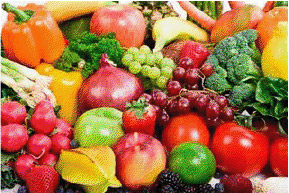 Phytochemicals by Derek Tresize |
|
People everywhere are very confused about nutrition. I see this every day working with clients as I sortthrough the questions and conflicting information most people use as the foundation of their eatinghabits. And who can blame them? With all the pseudo-science diet books, scare tactic nutrition storieson the news, and processed food ads we are inundated with everyday, it's no wonder many people areconfused or dead wrong about what they should be eating. This is just as true in the supplement industryas anywhere else. I recently went through several of my old exercise magazines and clipped out somenutrition articles. For those of you who read such magazines with any regularity, you probably recognizethe type of article I was looking for. They usually begin with "such and such chemical found to have xyzdramatic health benefits", then they go on to tell you to buy said chemical in supplement form. I alwaysfind these articles funny (and frustrating) because of their obvious implications. Here are some I cut outas examples:
Antioxidants in blueberries found to slow the effects of aging — CNN
Beta-ecdysterone in spinach increases protein synthesis [muscle growth] by 20% —MuscleMag
Betaine from beets found to increase muscle endurance and recovery — Flex
Fruits and vegetables help maintain muscle mass and reduce muscle wasting in older adults
— MuscleMag
ECGC in green tea boosts the immune system and helps reduce bodyfat — Muscle and Fitness
Capsaicin in hot peppers helps reduce overeating and aids in loss of bodyfat — Muscle andFitness
Polyphenols in apples increase muscle strength — Flex
Licorice extract from the licorice plant increases weight loss — MuscleMag
Resveratrol in grapes is a potent anti-cancer chemical — Men's Health
Lycopene in tomatoes prevents prostate cancer — Eating Well

The pattern is pretty obvious to me, but the magazines inevitably go on to advertise a supplement form ofthe aforementioned chemical to reap the health benefits. It seems a lot easier and less expensive to meto eat a salad or have some fruit. Not only that, but there are literally thousands of phytochemicals in allthe plants we eat. Isn't there just a chance one of those that hasn't yet been studied is also beneficial?Isn't there also a chance that some of these compounds have synergistic benefits when eaten together?It seems reasonable to assume so, so we can go ahead and say that eating produce to ingest thesemiracle compounds is easier, cheaper, and more-than-likely much healthier than taking themas isolated supplements. This 'striking' revelation has already been discovered by many esteemedhealth professionals such as those with the Physicians Committee for Responsible Medicine, The T Colin Campbell Foundation, and many other pioneering physicians who routinely cure incurable diseaseslike advanced heart disease and type 2 diabetes, all with the power of plants! So, the next time youare reading a health magazine and see the latest research suggesting a new plant-extraction as asupplement, ignore it and then ask yourself: "Have I eaten my produce today?"
Derek Tresize
BS Biology
ACE Certified Personal Trainer
Certified in Plant-Based Nutrition



Recommended Comments
There are no comments to display.